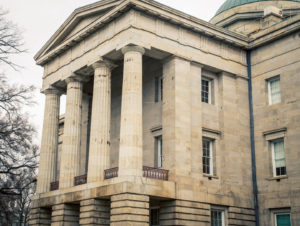Legal briefs: South Carolina Supreme Court should allow scholarship program
(The Center Square) — Two out-of-state groups have filed briefs urging the South Carolina Supreme Court to allow the state’s Education Scholarship Trust Fund program to proceed.
In October, The…

(The Center Square) — Two out-of-state groups have filed briefs urging the South Carolina Supreme Court to allow the state’s Education Scholarship Trust Fund program to proceed.
In October, The South Carolina Education Association, the South Carolina State Conference of the NAACP and six public school parents sued over S.39, the Educational Scholarship Trust Fund. They want the South Carolina Supreme Court to strike down the measure, saying it takes away resources from the state’s public schools.
Under the measure, eligible students — state residents with “a statement of Medicaid eligibility” — can receive up to $6,000 in scholarships. The money can help cover instructional materials, tutoring, computer hardware, assessments, transportation, tuition and fees.
The number of scholarships is limited to 5,000 for the 2024-25 school year, and a South Carolina Revenue and Fiscal Affairs Office fiscal estimate found the measure needs $30 million. That would increase to $60 million for 10,000 scholarships in the 2025-26 school year and $90 million for 15,000 scholarships in 2026-27 and subsequent years.
The Buckeye Institute, based in Columbus, Ohio, and the Wisconsin Institute for Law & Liberty, based in Milwaukee, Wisconsin, filed an amicus brief in the case Eidson v. South Carolina Department of Education.
“Just as they did in Ohio—and continue to do today—entrenched special interests in South Carolina are using the courts to block a school choice program that elected representatives of the people passed and that parents—particularly low-income parents—want,” David C. Tryon, director of litigation at The Buckeye Institute, said in a Friday statement. “The South Carolina Supreme Court should tell these special interests they cannot deny families the opportunity school choice offers poor and minority students.”
A South Carolina Education Association representative did not respond to a request for comment on the filing.



